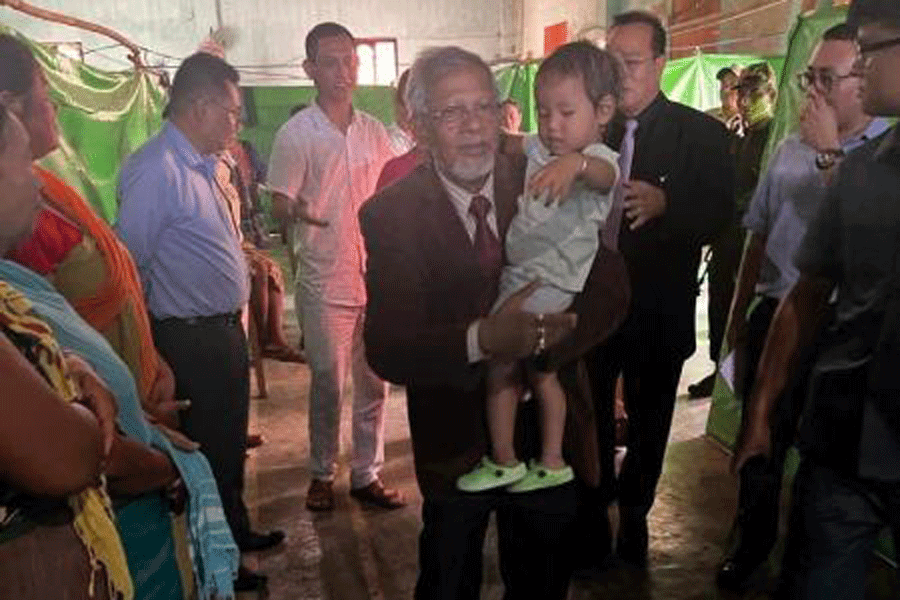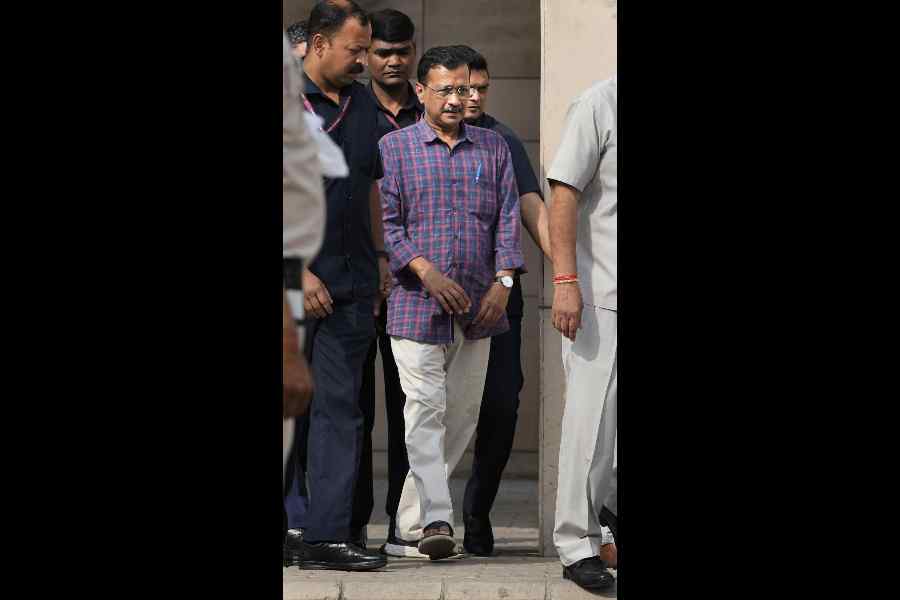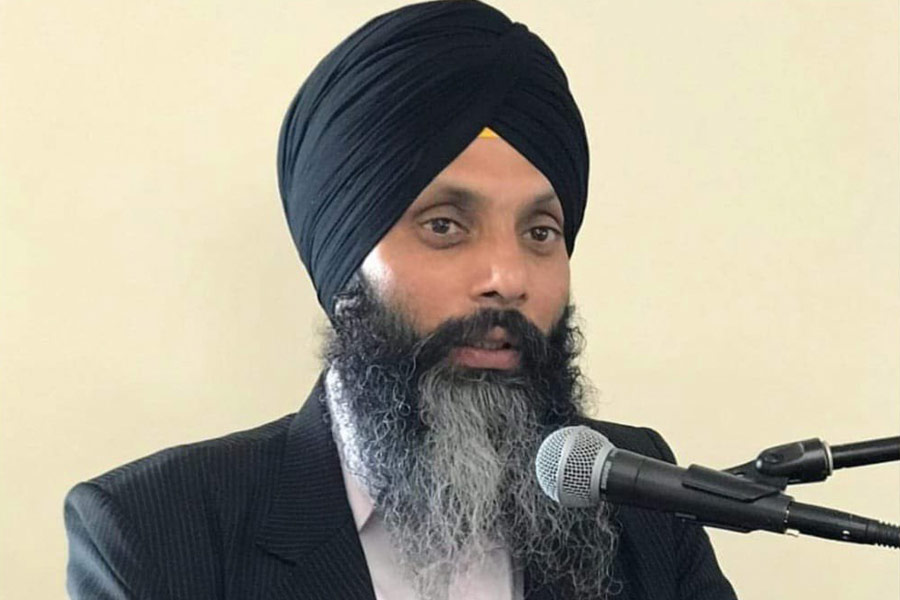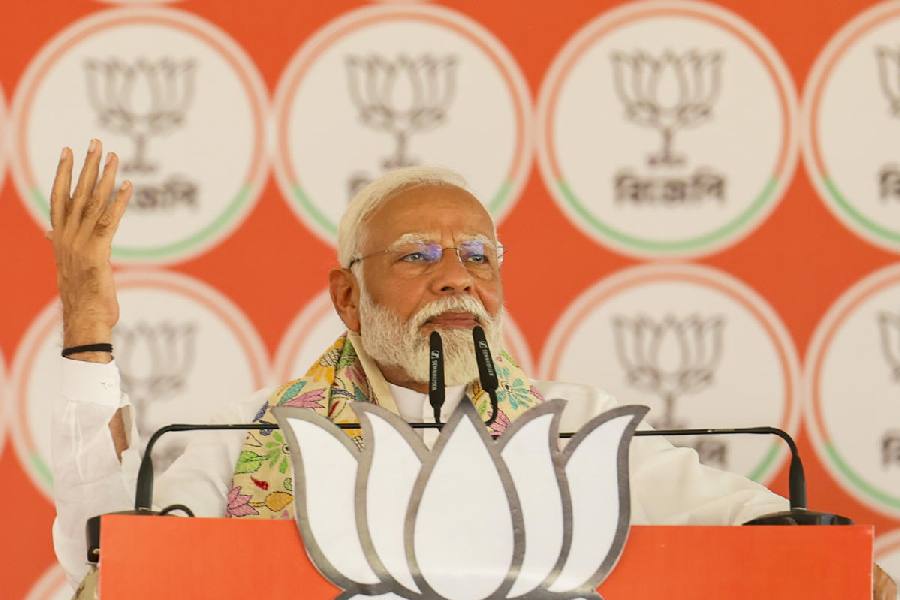The Manipur Human Rights Commission has asked the state government to provide “essential medicines” and “afternoon tea and snacks” to the violence-hit people staying at its relief camps, with sources saying the recommendations reflect “gaps” in the relief being provided.
The recommendations came in a five-page letter to Manipur chief secretary Vineet Joshi on October 12 after an MHRC team visited relief camps in the Kakching, Tengnoupal, Bishnupur, Kamjong, Imphal East and Imphal West districts between September 26 and October 2.
“The government should also provide essential medicines to the IDPs (internally displaced persons) including those medicines as and when the consulting doctor prescribes,” the letter said.
“The district administration should make necessary arrangements for providing afternoon tea and snacks to the IDPs in addition to 2 meals in a day.”
The MHRC also recommended that the health department arrange for a “staff nurse to visit the relief camps on a daily basis”, and Rs 50,000 be provided to each student who has suffered severe injury, as announced by the chief minister, “if not done yet”.
People familiar with the MHRC visits told The Telegraph that the recommendations were based on the team’s interactions with the camp inmates and “pointed out the gaps” in the relief being provided.
They said MHRC representatives had visited 10 relief camps since August 30, including one each in the Churachandpur and Thoubal districts. On October 4, the MHRC visited hospitals in Imphal where students injured in action by the security forces on September 26 and 27 were being treated.
Inmates at a relief camp in Moirang College in Meitei-majority Bishnupur district had on September 28 asked the visiting MHRC team “if some tea and snacks could be provided in the afternoon”.
The Bishnupur deputy commissioner had assured the team that he would do the needful, the MHRC letter said.
On October 2, inmates at a community health centre in Imphal East told the MHRC team that doctors who visited the relief camp did prescribe medicines “but they (inmates) didn’t have any money to buy the medicines”. The MHRC chairperson “advised” the sub-divisional officer to take the matter up with the district authorities.
The rights body has also recommended faster investigations into the Meitei-Kuki violence that began on May 3 and has killed at least 176 people and displaced over 67,000, of whom more than 12,000 have taken shelter in neighbouring Mizoram.
The MHRC team was led by its chairperson U.B. Saha and included member K.K. Singh.
Hills’ woes
A relief worker in Kangpokpi district told this newspaper there was a “real shortage of medicines” in the hills.
“The medical infrastructure in the hills is unable to handle most of the cases because of a lack of equipment. Medicines and financial assistance to the injured should be provided since most IDPs have no source of income. I have been personally requesting people to help with medicines,” the relief worker said.
The relief worker urged the MHRC to visit camps in the hill areas regularly to identify the difficulties faced by inmates in the Kuki-Zo-majority Churachandpur and Kangpokpi districts, which have the highest numbers of displaced people.
“Tea is a staple in our state, both in the hills and the valley. Milk, tea leaf and sugar are provided on Saturdays in Kangpoki but no biscuits, which we manage ourselves,” the relief worker said.
“There should be monthly inspections by the administration to see whether the nodal officers are providing milk, tea and biscuits.”
A relief camp inmate in Imphal told this newspaper that tea was provided twice a day, but requested the government to ensure an early return for the families to their native places.
The inmate, who was from Moreh, said: “No matter what they provide us here, home is home. We want to go back. It has been over five months now.”
According to a status report submitted by the state’s BJP-led government to the Supreme Court on July 3, there were 354 relief camps with 54,488 inmates across 13 of Manipur’s 16 districts.
It added that the Centre had provided “approval for assistance” of Rs 101 crore for relief camp management while the Manipur government had sanctioned a contingency fund of Rs 12 crore to meet exigencies in providing relief.










